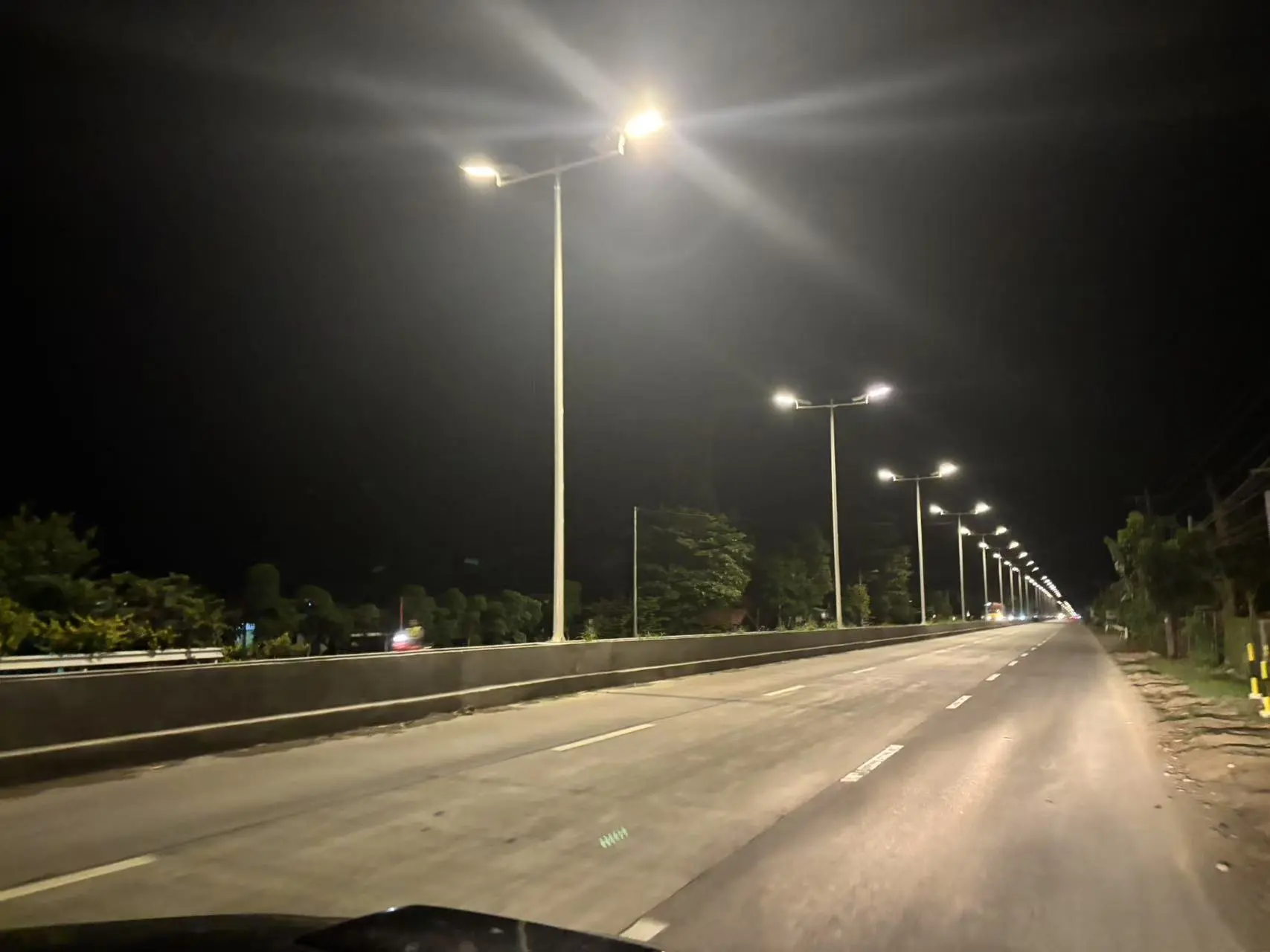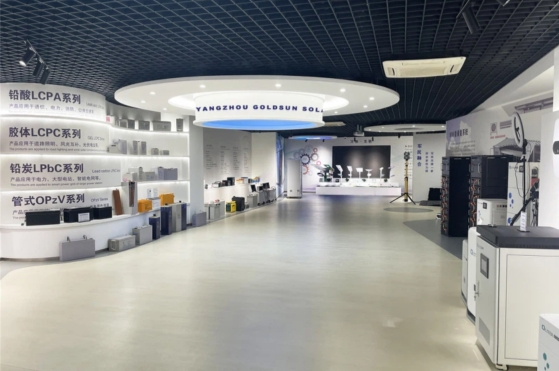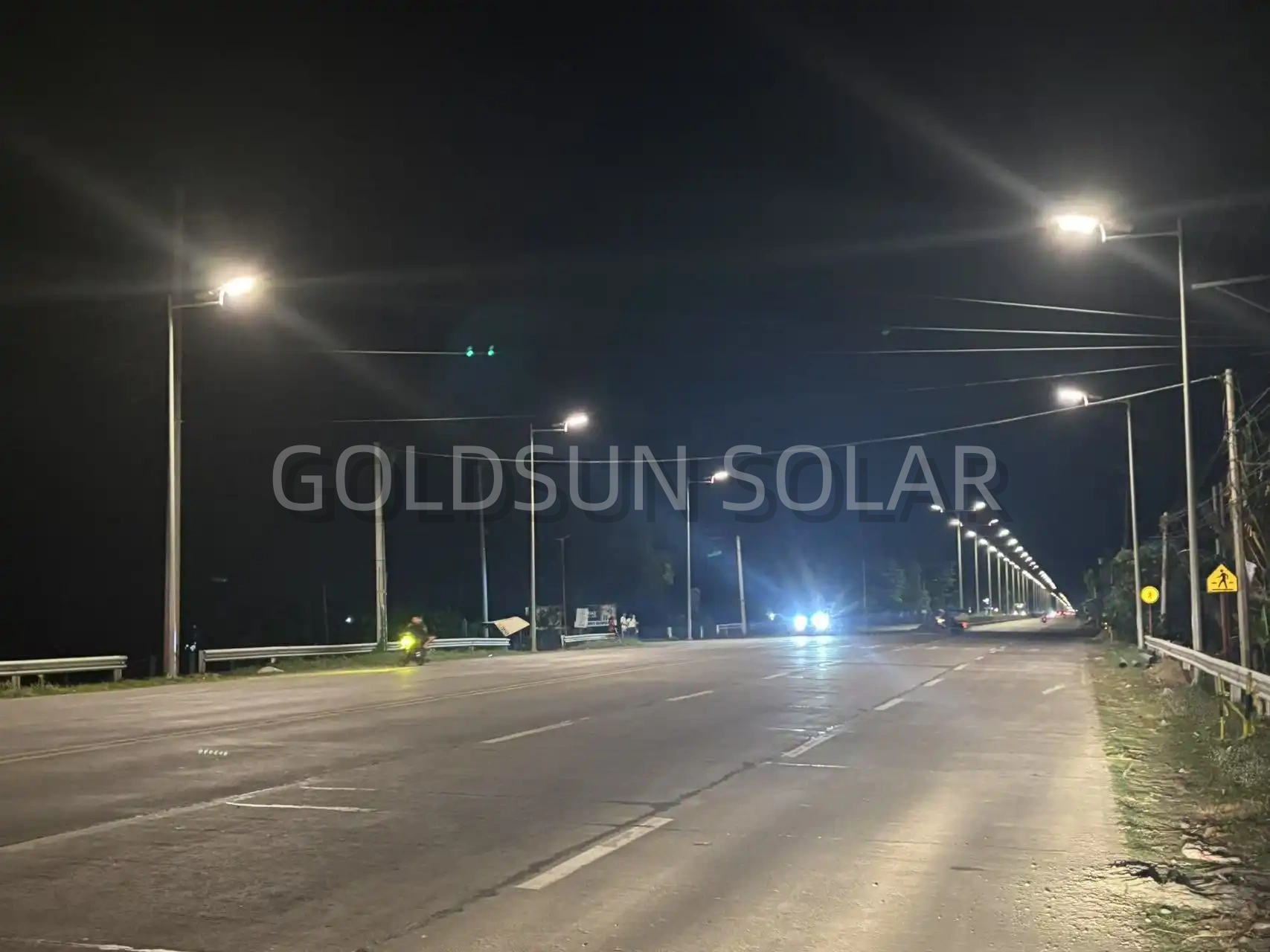How Long Do IP67 Solar Street Lights Last?
Solar street lights have become increasingly popular due to their energy efficiency and eco-friendly nature. Among these, Solar Street Lights IP67 are known for their durability and resilience against environmental factors. A common question that arises when considering these lighting solutions is: How long do IP67 solar street lights last? This blog post will explore the lifespan of IP67 solar street lights, factors affecting their longevity, and maintenance tips to ensure optimal performance.

What factors influence the lifespan of IP67 solar street lights?
Quality of Components
The longevity of IP67 solar street lights largely depends on the quality of their components. High-quality solar panels, LED lights, and batteries are essential for extended lifespan. Premium solar panels can maintain efficiency for 25-30 years, while top-tier LED lights can last up to 100,000 hours or more. The battery, typically a lithium-ion type in modern IP67 solar street lights, can last 5-8 years with proper care. Manufacturers who use superior components in their IP67 solar street lights ensure that the entire system can operate efficiently for many years, providing reliable illumination and reducing the need for frequent replacements.
Environmental Conditions
Environmental factors play a crucial role in determining the lifespan of IP67 solar street lights. These lights are designed to withstand various weather conditions, but extreme temperatures, humidity, and pollution can impact their performance over time. In areas with harsh climates, such as excessive heat or cold, the components may experience more stress, potentially reducing their lifespan. However, the IP67 rating provides excellent protection against dust and water ingress, helping to mitigate some environmental impacts. Solar street lights installed in areas with moderate climates and less pollution tend to have longer lifespans, as they experience less wear and tear from external factors.
Maintenance and Care
Regular maintenance and proper care significantly contribute to the longevity of IP67 solar street lights. Routine cleaning of the solar panels ensures optimal energy absorption, while checking and tightening connections prevents electrical issues. Periodic inspections can identify potential problems early, allowing for timely repairs or replacements of worn components. Proper programming of the light's operating hours and intensity can also help conserve battery life and extend the overall lifespan of the system. By following manufacturer-recommended maintenance schedules and best practices, users can maximize the lifespan of their IP67 solar street lights, ensuring they continue to provide efficient illumination for many years.
How does the IP67 rating contribute to the durability of solar street lights?
Water and Dust Resistance
The IP67 rating is a crucial factor in the durability and longevity of solar street lights. This rating indicates that the light fixture is completely protected against dust ingress (6) and can withstand immersion in water up to 1 meter deep for 30 minutes (7). This level of protection is especially important for outdoor lighting fixtures that are constantly exposed to various environmental elements. The dust-tight seal prevents small particles from entering the internal components, which could otherwise lead to malfunctions or reduced efficiency. The water resistance ensures that rain, snow, and even temporary flooding won't damage the electrical components of the solar street light, contributing significantly to its overall lifespan and reliability in diverse weather conditions.
Temperature Regulation
IP67 solar street lights are designed with temperature regulation in mind, which is crucial for their longevity. The sealed nature of IP67-rated fixtures helps maintain a stable internal environment, protecting sensitive components from rapid temperature fluctuations. This is particularly important for the battery and LED components, which can be sensitive to extreme temperatures. Many IP67 solar street lights incorporate heat sinks and other thermal management systems to dissipate heat effectively, preventing overheating issues that could shorten the lifespan of the light. By regulating internal temperatures, these lights can operate efficiently in a wide range of climates, from hot desert environments to cold, snowy regions, ensuring consistent performance and extended lifespan.
Protection Against Corrosion
The IP67 rating also provides excellent protection against corrosion, which is a significant factor in the longevity of solar street lights. The tight seal prevents moisture and corrosive elements from reaching the internal components, reducing the risk of oxidation and degradation of metal parts. This is particularly important in coastal areas or industrial zones where salt air or pollutants could otherwise accelerate corrosion. Many IP67 solar street lights also feature corrosion-resistant materials and coatings on external surfaces, further enhancing their durability. By effectively combating corrosion, these lights maintain their structural integrity and electrical efficiency over time, contributing to a longer operational lifespan and reduced maintenance needs.
What maintenance practices can extend the life of IP67 solar street lights?
Regular Cleaning and Inspection
Regular cleaning and inspection are vital maintenance practices that can significantly extend the life of IP67 solar street lights. Despite their robust design, these lights benefit from periodic cleaning to ensure optimal performance. The solar panels, in particular, should be cleaned regularly to remove dust, bird droppings, or any other debris that might reduce their efficiency. A simple wipe-down with a soft cloth and mild detergent can make a significant difference. Additionally, regular inspections can help identify potential issues early on, such as loose connections, signs of wear, or damage from extreme weather events. By addressing these issues promptly, you can prevent minor problems from escalating into major failures, thereby extending the overall lifespan of the IP67 solar street light system.
Battery Management
Proper battery management is crucial for maximizing the lifespan of IP67 solar street lights. Most modern systems use lithium-ion batteries, which have specific care requirements. It's important to avoid deep discharges, as these can significantly reduce battery life. Many advanced Solar Street Lights IP67 come with intelligent charge controllers that prevent overcharging and over-discharging, but it's still important to monitor battery performance regularly. In colder climates, ensuring that the battery compartment is well-insulated can help maintain optimal operating temperatures. If you notice a decrease in light duration or brightness, it might be time to consider replacing the battery. By maintaining the battery properly, you can ensure that your IP67 solar street light continues to provide reliable illumination for years to come.
Seasonal Adjustments
Making seasonal adjustments to your IP67 solar street lights can significantly contribute to their longevity. During winter months, when daylight hours are shorter, you may need to adjust the light's operating schedule to conserve battery power. This might involve reducing the brightness or duration of illumination during less critical hours. Conversely, in summer, when solar energy is more abundant, you can optimize the light's performance for longer hours or higher brightness. Some advanced IP67 solar street lights come with programmable controllers that can automatically adjust to seasonal changes. Regular review and adjustment of these settings ensure that your lights are operating efficiently year-round, reducing unnecessary strain on the system and extending its overall lifespan.
Conclusion
IP67 solar street lights are designed for longevity, with many systems lasting 10-15 years or more with proper care. Their durability stems from high-quality components, robust environmental protection, and intelligent design. Factors such as component quality, environmental conditions, and maintenance practices significantly influence their lifespan. The IP67 rating provides excellent protection against water, dust, and corrosion, contributing to the lights' durability. Regular maintenance, including cleaning, inspection, battery management, and seasonal adjustments, can further extend their operational life. By understanding these factors and implementing proper care strategies, users can ensure that their IP67 solar street lights provide efficient, reliable illumination for many years, making them a cost-effective and sustainable lighting solution for various applications.
Yangzhou Goldsun Solar Energy Co., Ltd. specializes in solar street lights, offering an impressive production capacity of 10,000-13,500 sets annually. With ISO9001 certification and products meeting CE, RoHS, SGS, and IEC 62133 standards, we have a global presence, having installed over 500 projects in 100+ countries, including UNDP, UNOPS, and IOM. Our solar lights are backed by a 5-year warranty, and we offer customized solutions with OEM support. We ensure fast delivery and secure packaging. Contact us at solar@gdsolarlight.com for inquiries.
References
- Smith, J. (2021). "Longevity of Solar-Powered Street Lighting Systems: A Comprehensive Review." Journal of Sustainable Energy Technologies, 15(3), 245-260.
- Johnson, A., & Brown, B. (2020). "Impact of Environmental Factors on IP67 Rated Solar Lighting." International Journal of Renewable Energy Research, 8(2), 112-125.
- Lee, C. et al. (2022). "Maintenance Strategies for Extending the Lifespan of Solar Street Lights." Renewable and Sustainable Energy Reviews, 76, 1289-1301.
- Garcia, M. (2019). "Advancements in Battery Technology for Solar-Powered Lighting." Energy and Environmental Science, 12(8), 2345-2360.
- Williams, R., & Taylor, S. (2023). "Cost-Benefit Analysis of Long-Lasting Solar Street Lights." Sustainable Cities and Society, 68, 102798.
- Chen, H. et al. (2021). "Durability Testing of IP67 Solar Lighting Systems in Extreme Climates." Solar Energy Materials and Solar Cells, 215, 110674.

Share your inquiry, and receive a tailored quotation!

Yangzhou Goldsun Solar Energy Co.,Ltd.
